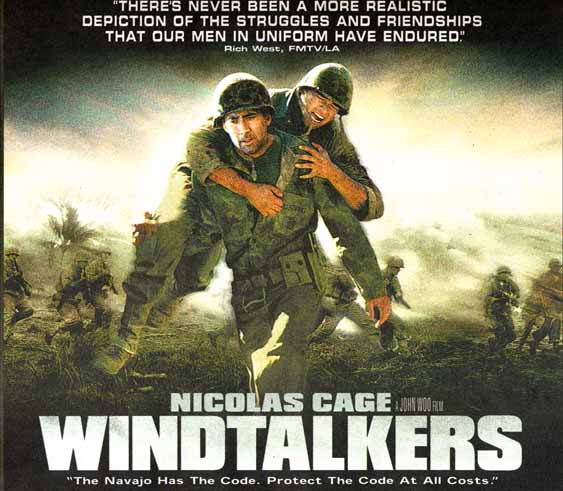Lights, Camera...Covert Action--In HollywoodA variety of state agencies have liaison offices in Hollywood today, from the FBI, to NASA and the Secret Service. Few of these agencies, though, have much to offer in exchange for favourable storylines, and so their influence in Hollywood is minimal. The major exception here is the Department of Defense, which has an ‘open’ but barely publicized relationship with Tinsel Town, whereby, in exchange for advice, men and invaluable equipment, such as aircraft carriers and helicopters, the Pentagon routinely demands flattering script alterations. Examples of this policy include changing the true identity of a heroic military character in Black Hawk Down (2001) due to his real-life status as a child rapist; the removal of a joke about "losing Vietnam" from the James Bond film Tomorrow Never Dies (1997), and cutting images of Marines taking gold teeth from dead Japanese soldiers in Windtalkers (2002). Instances such as these are innumerable.And:
Clandestine agencies have a long history of interference in the cinema industry. Letters discovered in the Eisenhower Presidential Library from the secret agent Luigi G. Luraschi (identified by British academic John Eldridge), the Paramount executive who worked for the CIA’s Psychological Strategy Board (PSB), reveal just how far the CIA was able to reach into the film industry in the early days of the Cold War, despite its claims that it sought no such influence. For instance, Luraschi reported that he had secured the agreement of several casting directors to subtly plant "well dressed negroes" into films, including "a dignified negro butler" who has lines "indicating he is a free man" in Sangaree (1953) and in a golf club scene in the Dean Martin/Jerry Lewis vehicle The Caddy (1953). Elsewhere, CIA arranged the removal of key scenes from the film Arrowhead (1953), which questioned America’s treatment of Apache Indians, including a sequence where a tribe is forcibly shipped and tagged by the US Army. Such changes were not part of a ham-fisted campaign to instill what we now call "political correctness" in the populace. Rather, they were specifically enacted to hamper the Soviets’ ability to exploit its enemy’s poor record in race relations and served to create a peculiarly anodyne impression of America, which was, at that time, still mired in an era of racial segregation.Comment: So the CIA, the Pentagon, and other government agencies are deeply involved in shaping the content of movies. Apparently they haven't gotten the memo saying "Movies are just movies" and don't influence anyone.
Whom are you going to believe: Government agencies who spend enormous amounts of time and money to change public perceptions based on the latest psychological research? Or a bunch of incredibly naive viewers who think movies don't matter because they're in denial about our racist history and culture?
I don't know about you, but I'm going with the government agencies. They try to censor unfavorable messages because movies (and other forms of media) matter.
For more on the subject, see
The Influence of Movies.
Below: Indians are literally the white man's burden in
Windtalkers.



No comments:
Post a Comment